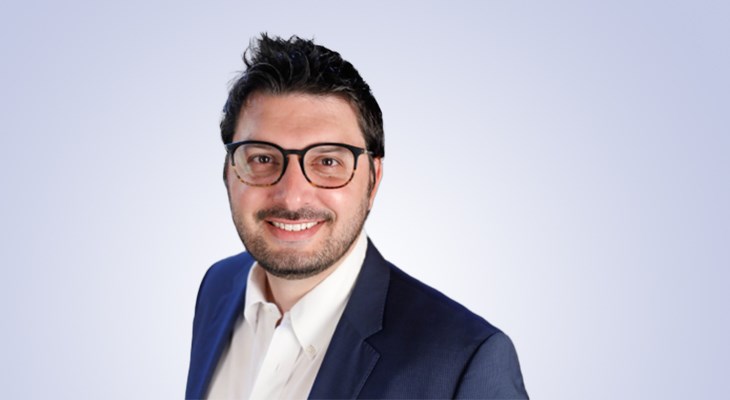Lu Alleruzzo, a bioengineer with an MBA, had an opportunity early in his career to understand innovation and immediately apply it to society for the benefit of all. That opportunity fueled him and Immunophotonics, a biotech company that is pioneering a novel field of cancer care they have coined, Interventional Immuno Oncology (IIO).
In its simplest form, IIO is the convergence of physical tumor destruction with immune stimulation to eliminate the cancer. Immunophontics is spearheading this new field through the development of its lead asset, IP-001, a drug intended to transform a routine interventional procedure into a systemic, whole-body immunotherapy against the cancer.
Alleruzzo won’t go as far as saying they’re developing a cure for cancer, but the drug could be capable of doing just that.
“Cancer is an extremely complicated and sneaky disease that no one knows the answer to,” says Alleruzzo, co-founder and the CEO of Immunophotonics. “So, it's going to take, in my opinion, a multitude of ideas that ultimately work together to control the disease so it no longer is something that becomes terminal. That's the dream. That's the vision. That's what we all hope for.”
IP-001 is used in conjunction with interventional oncology procedures, such as a tumor ablation. The drug targets tumor debris left over after a surgeon removes the tumor.
“After that routine tumor destruction, you simply hand the performing physician a syringe of our drug,” Alleruzzo says. “They inject IP-001 in the same site of the tumor ablation and through its unique mechanisms, our drug binds and retains that information allowing for a presentation to the immune system. When that presentation occurs, our drug also activates the immune system in an extremely powerful, yet tolerable, way that ultimately says to the immune system, ‘Ah ha, I've now recognized what is foreign.’”
As a result, the immune system sends killer T cells to not only attack the remaining tumor debris, but also distant untreated tumors.
As impressive as what this drug can do, the pharma and biotech industries can be capital intensive because of the clinical trials, the patent process, and the time it takes for research and development to bring a product to market. Immunophotonics has raised several rounds of capital, including a $19 million Series B round last year.
“It takes a tremendous amount of effort from a team and takes a tremendous amount of capital,” Alleruzzo says. “It takes a tremendous amount of dedication to overcome some of the challenges in the biotech Industry. You have to have alignment with your team, with your investors and there has to be vision and dedication there. And we've been fortunate to raise a tremendous amount of capital both in R&D — grants and various other forms of financing as well as traditional fundraising. And, ultimately, at this point what we've done is simply gone out to tell our story.”
Alleruzzo understands it will be vital to Immunophotonics’ success that they bring on partners.
“IP-001 has the potential to be effective in certain solid-tumor indications,” Alleruzzo says. “Based on our finding to date, there’s a tremendous opportunity to expand our technology to other oncology indications, as well as other uses, such as infectious disease. In order for us to grasp the full potential of our approach and our technology, we recognize we’re going to need to have those additional partners.”
To expand, Alleruzzo says, it’s important to ensure they have a long-term plan to protect their intellectual property portfolio in over 40 countries, and not just around their core asset but also covering the space around a plethora of other molecules they can continue to explore.
Immunophotonics has conducted substantial, non-clinical research and they’re seeing positive signals that their approach has the potential to create a strong immune response or anti-tumor immune response.
“Ultimately for us, the next step is demonstrating this in patients,” Alleruzzo says.
More than anything, Alleruzzo is excited to hear how his company’s work can influence the lives of others. He’s already had one person reach out to thank him.
“After one of our investigator-driven trials, someone reached out to the company,” Alleruzzo says. “She participated in our program and had Stage 4 cancer, and she just wanted to let me know that she's back at work. She's back living life. As normal as she could with what she's going through and she just wanted to tell me, ‘Thank you!’ And that moment will impact me for the rest of my life.”
Alleruzzo spoke on the Smart Business Dealmakers Podcast about how his company is developing a new form of cancer treatment. Hit play above to catch the full conversation.




